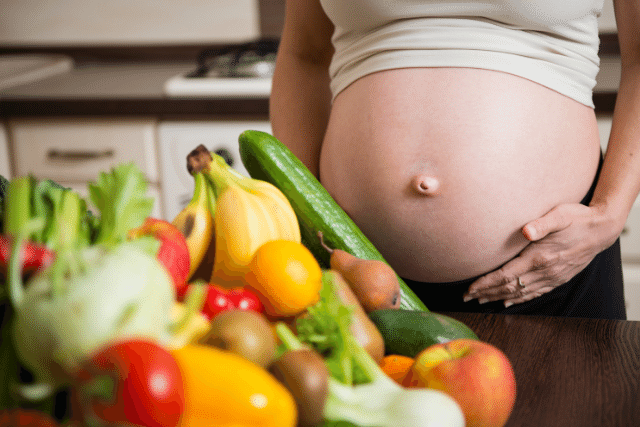Recent Posts
-

- Diabetes-Friendly Nutrition: Smart... 08.12.2024
-

- Nutrition for Chronic... 08.12.2024
-

- Anti-Inflammatory Diet: Food... 08.12.2024
-

- Low-Sodium and Heart-Healthy:... 08.12.2024
-

- Plant-Based Diets for... 08.12.2024
Vegetables that are Good for Pregnancy

Being pregnant is not an easy task. When a woman goes through childbirth, she experiences various physical and emotional changes. In addition, they develop an acute awareness of their surroundings, including food. Aside from that, they have to make sure they're feeding themselves and the baby properly.
Maintaining a nutritious diet throughout pregnancy is essential. To do this, expectant mothers should consume various nutritious foods in appropriate portions and time. Anything unhealthy is potentially harmful to the mother and her unborn child. In addition to helping the baby reach a healthy birth weight and lowering the risk of anemia, eating vegetables helps the mother maintain a healthy blood pressure level and gain healthy weight.
However, pregnancy can cause hormonal changes to women’s bodies that make them sensitive to what they are eating. Regardless, pregnant women can choose from many kinds of vegetables. Check out the list below:
- Sweet Potatoes
- These are rich sources of Vitamins A, B, and C
- Beet Root
- These are a good source of vitamins and fiber. They also aid in the development of a stronger defense mechanism.
- Bell Peppers
- Vitamins and fiber are found in abundance in these foods.
- Broccoli
- Constipation may be eased by their high concentration of vitamins C, K, and folate.
- Green Peas
- Green peas are rich in Vitamin C and K. It also includes fiber.
- Dark Leafy Greens
- These are rich in fiber, carotenoids, and folate.
- Parsley
- These are high in protein, Vitamin E, and riboflavin.
- Tomatoes
- Tomatoes contain Vitamin C K and biotin.
In addition to this, there are alternatives to vegetables for women if allergic reactions happen or it does not suit their taste preferences.
- Pregnant women may consume dairy items such as yogurt. They aid in the provision of protein and calcium. Probiotics may alleviate symptoms such as bacterial vaginosis and stomach cramps as a preventative measure.
- Folate, fiber, and a host of other nutrients are found in legumes. To reduce the likelihood of birth abnormalities, folate is a necessary vitamin during pregnancy.
- DHA and EPA are found in abundance in salmon. Prenatal eye and brain growth are dependent on their presence. Vitamin D may also be found naturally in it.
- Because of their high nutritional value, eggs are a great way to increase daily nutrient intake. Their high concentration of choline may improve brain health.
- The protein content is exceptionally high in lean meat. The iron, choline, and B vitamins found in beef and pig and other essential minerals make these meats ideal for pregnant women to consume.
- Omega-3 fatty acids, Vitamin A, and Vitamin D may be obtained via fish or cod liver oil. Women who avoid seafood may find this helpful.
- Water, Vitamin C, fiber, carbohydrates, antioxidants, vitamins, and plant components are all found in berries. They may help you get more water and nutrients into your body. "
- Whole grains are a great source of vitamins, fiber, and plant components.
Remember that there are different vegetables in the market that pregnant women can consume. It is safer to consult their doctor to know what kind of foods can they eat.
Sources:
List of 11 Vegetables to Eat during Pregnancy (firstcry.com)





